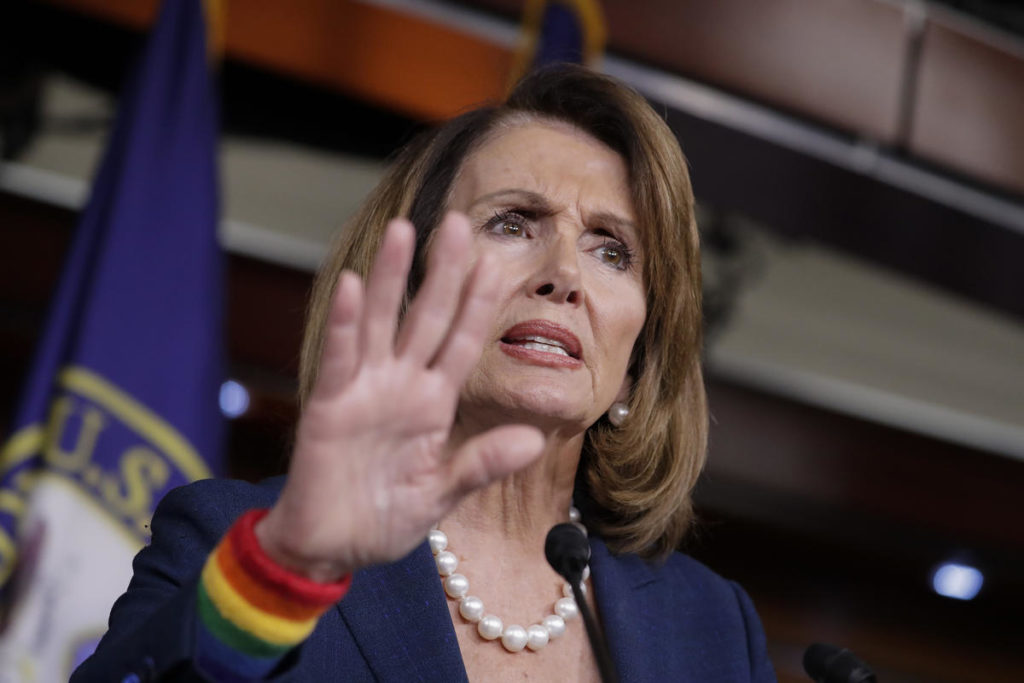Parker Snider: Florida shows school choice doesn’t destroy public education

“This is the day that will go down in the annals of Florida history as the day we abandoned the public schools and the day that we abandoned, more importantly, our children.” -Florida Rep. Debbie Wasserman Schultz (March 25, 1999) In 1999, opponents predicted the worst when the Florida legislature first considered a meaningful school choice program. Governor Jeb Bush’s plan to offer vouchers to students in failing schools would “kill public education,” according to Leon Russell, then the chairman of the Florida Chapter of the NAACP. Howard Simon, the executive director of the ACLU of Florida, likewise wrote that the program “subsidiz[ed] abandonment of the public schools and abandonment of efforts to improve the public schools.” Public education was going to be destroyed. To school choice opponents, it was that simple. This was the end. Florida did not heed their warning. Since the original program offering school choice to students in failing public schools passed in 1999, the state has made school choice more widely available over and over again. Today, many students can choose between their zoned public school, a private school paid for by a state-funded scholarship, or one of the state’s 650+ charter schools. Additionally, many students are able to transfer to a public school outside of their district or, if they desire, enroll in the Florida Virtual School. School choice has grown so much in Florida, in fact, that over 400,000 students are enrolled in schools of choice in the Sunshine State. Simply put, school choice has exploded in Florida. The public school system, if we are to believe school choice opponents, must have been obliterated. If the first school choice program in 1999 was going to kill public education, these further expansions must have done even worse. The problem for school choice opponents (and the good news for everyone else) is that public education in Florida has thrived in the presence of school choice. In 1999, Florida was testing just barely above Alabama on the NAEP, a national standardized test of a state’s public schools. Both states were well below average. Over the last twenty years, however, as Florida has increased school choice opportunities repeatedly, the state has progressed. Now Florida is no longer below average but well above it, scoring at the top of the charts in multiple subjects according to the NAEP. In fact, Florida ranks first, first, third, and eighth on the four core tests of the NAEP, once adjusted for demographics. Meanwhile, Alabama is dead last or close to last in each of these areas. It’s not just the NAEP that suggests things are going well in Florida’s public education system. The College Board announced last year that Florida ranks second in the nation for the number of students that successfully pass its college-level Advanced Placement exams. Furthermore, according to the Florida Department of Education, Florida’s graduation rate is up from 52% in 1999 to 86% today. All of this adds up to a recent ranking placing Florida as third in the nation for K-12 achievement, according to EdWeek. Alabama, on the other hand, ranks 46th. It’s hard to say Florida’s children have been “abandoned” with these numbers. And it’s impossible to argue with a straight face that school choice has “killed” public education in the state. In fact, a study by the National Bureau of Economic Research in 2020 demonstrated that the presence of school choice in Florida actually helped public schools perform better. That’s not to say that all of Florida’s advancements in education have been because of school choice–certainly, other measures, such as increased accountability and transparency, have contributed to Florida’s standing as an exemplary state in education. What is undeniable, however, is that school choice did not destroy public education. Unfortunately, this hasn’t stopped school choice opponents here in Alabama from using these same tired lines and predicting the same dire future. They won’t tell you how competition in other states has made public schools better. No, they’ll just say we’re abandoning our state’s children. Florida tells us that they couldn’t be more wrong. Parker Snider is the Director of Social Policy for the Alabama Policy Institute.
Parker Snider: Arizona governor signs universal school choice legislation into law

School choice for every family, regardless of income, zip code or social status, has become reality in Arizona. This week, Arizona Governor Doug Ducey (R) celebrated with parents, students and teachers at Phoenix Christian Preparatory School his signing of the nation’s most expansive school choice program in history into law. “Arizona is now the gold standard for educational freedom in America,” Governor Ducey said. “Our kids will no longer be stuck in under-performing schools. We’re unlocking their educational potential and advancing a bold new era of learning opportunities. Parents and teachers know there is no one-size-fits-all model to education. Kids and families should be able to access the school or learning program that best fits their unique needs — regardless of income or where they live. In Arizona, we’re making sure they have that choice.” The program offers any family, if they prefer a different education option other than the school they are zoned for, around $6,500 though an Empowerment Savings Account (similar to a health savings account but for K-12 education) to attend a private school, pay for homeschooling expenses, enroll in an online school, or pay for other approved expenses. Six percent of Arizona students are already enrolled in schools of choice using Empowerment Savings Accounts, a voucher program. Prior to this law, the program was limited to those with special needs, military families, and children who have been adopted or are in foster care. The expansion, however, opens the program to all families in Arizona. Fox News host Greg Gutfeld praised the bill’s signing on The Five Wednesday evening. “What’s happening in Arizona is so amazing,” Gutfeld said. “We’re going to see a huge change…it’s the parents that are pushing this, and it’s really going to change things.” Arizona is setting the standard in the school choice movement, according to American Federation for Children fellow Corey DeAngelis. Arizona’s Governor Ducey agrees. “I want to say to every one of my fellow governors,” Governor Ducey said Tuesday, “you can grab this bill, scratch out Arizona, write your state in, pass it through the two chambers, and you can have a ceremony like we’re going to celebrate today.” In the 2022 regular session, Alabama legislators had the opportunity to pass similar legislation as Arizona. The Parent’s Choice Act, SB140 sponsored by Senator Del Marsh (R-Anniston) and Rep. Charlotte Meadows (R-Montgomery), would have offered families over $5,000 per student to use for private school tuition and other approved expenses through an Education Savings Account. That bill, however, did not get a vote in either the House or the Senate. Many Republicans simply did not seem interested, even though school choice is a part of the party’s national platform. The Alabama Policy Institute, in fact, was one of only a few groups that supported the bill publicly. Governor Kay Ivey also did not openly support or oppose the bill. As more and more states adopt expanded school choice, however, the governor and quiet legislators will likely have to break their silence on the issue. Parker Snider is the Director of Social Policy for the Alabama Policy Institute.
Parker Snider: On abortion, the Alabama legislature did it right

When it came to Alabama’s response to the Supreme Court decision overruling Roe v. Wade, it is hard to imagine a more seamless transition to an abortion-free state. Around 9:15 a.m. on Friday, June 24th, news of the Court’s decision in Dobbs v. Jackson Women’s Health Organization overruling Roe v. Wade reached Alabama. At 10:37 a.m., Alabama Attorney General Steve Marshall released a statement promising that his office was immediately filing motions to dissolve any injunctions against pro-life bills held up in the court system. These would have to be dissolved before pro-life measures could go into effect in Alabama. Just before 4:00 p.m., U.S. District Judge Myron Thompson lifted the injunction on the Human Life Protection Act, which bans elective abortion in Alabama, after a conference call with AG Marshall. With very limited exceptions, such as for the life of the mother, abortion was now illegal in Alabama. This seamless transition to an abortion-free state, though buoyed by the faithful service of AG Marshall and the right judgment of Judge Thompson, is largely a result of the Alabama legislature’s insistence on getting the abortion issue right. In 2019, the Alabama legislature did just that. They passed the most pro-life law in the nation, a law that recognized the life of the unborn child and protected it from untimely death. The law was carefully crafted to be effective and implemented easily, without copious confusion around definitions or hidden loopholes for lawsuits to stop the law from going into effect. During the debate around the bill, legislators stood firm in their argument that all unborn children, regardless of how they were conceived or whether their parents desired to keep them, were worthy of life and of protection. They also were especially careful to ensure that expectant mothers are not prosecuted for pursuing an abortion. Only the person providing or performing the abortion is liable under Alabama law. Never the mother. The legislature was also careful that, in their quest to protect life, they did not overextend their reach into issues like in vitro fertilization and emergency contraception. Though opinions abound on these topics, the goal of the Human Life Protection Act was kept intentionally narrow to make it as effective as possible. All in all, the legislature did the abortion issue right, and we are seeing the fruit of their labor today. The now-effective Human Life Protection Act is true to pro-life principles, will keep women from prosecution, and represents Alabama’s conservative values well. It is a morally just law of which our state ought to be proud. It was not a haphazard political stunt but a good and thoughtful policy that considered what implementation might look like if the ban were ever allowed to go into effect. None of this thoughtfulness was portrayed by the late-night television hosts plastering the faces of Alabama legislators, who were called “dumb” and “sexist” on screens across America. Legislators likely knew those types of attacks would come, and they should be applauded for voting as they did. Governor Kay Ivey, who signed the act into law in 2019, recently rejected a call to weaken the ban. This week, House Democrats asked her to call a special session of the legislature to reconsider the Human Life Protection Act. To her credit, the Governor’s Office has made it clear that such a special session would not happen. When drafting and supporting Alabama’s abortion ban, both the legislature and the governor put their pro-life convictions into action. Their joint effort made it possible, when Roe was overturned, for Alabama to effortlessly transition into the pro-life sanctuary our residents have always wanted our state to be. Of course, this is only the beginning. There will likely be a well-funded pressure campaign to manipulate our government into weakening this law. If Alabama residents want to maintain our status as a pro-life sanctuary, legislators and the governor alike will need the public’s support to stay the course. Parker Snider is the Director of Policy Analysis for the Alabama Policy Institute.
Parker Snider: Arizona poised to expand school choice to every student

A school choice measure that would allow all 1.1 million Arizona students to use state-funded education savings accounts passed in the state’s House of Representatives this week. The bill, HB2853, expands the state’s current education savings account program, which today serves just under 12,000 children, to all Arizona students. According to Corey DeAngelis, a senior fellow at the American Federation for Children, the program will be the largest in the nation if approved. That approval looks likely. The Arizona Senate seems poised to vote in its favor and Governor Doug Ducey, a school choice advocate, will likely sign the bill. Passage in the House, where two Republican members switched votes to push it over the finish line, appears to have been its most difficult legislative hurdle. Even so, there is some opposition. The Arizona Education Association, a teachers union, and an organization called “Save Our Schools Arizona” are calling on Senators to vote ‘no’. Knowing their efforts are likely to fail, Save Our Schools Arizona is planning a referendum campaign to force a vote of the people. A similar referendum in 2017 and 2018 was successful in stopping an earlier program expansion. That rejection, of course, was before the pandemic which caused many parents and families to see the benefits of school choice. If the measure goes into effect, families will be able to use the money–between $6,000 and $7,000 a year–for private school tuition, tutoring, homeschooling materials, and other approved expenses. Already many Arizona children are enrolled in a school of choice. 15% of Arizona students currently attend charter schools, which are privately operated schools that receive funding and some oversight from the local school district. Another 6% are enrolled in the private schools through Arizona’s current private school choice program. In Alabama, less than .1% of students are enrolled in charter schools. Only .5% are enrolled in private schools through a school choice program. This is not due to lack of demand, as many needy students attempting to escape their failing schools are not given the opportunity. Alabama’s school choice programs are simply too limited and are only serving the smallest number of students. In the 2022 Regular Session, Alabama legislators had the opportunity to pass similar legislation as Arizona. The Parent’s Choice Act, SB140 sponsored by Senator Del Marsh (R-Anniston) and Rep. Charlotte Meadows (R-Montgomery), would have offered families over $5,000 per student to use for private school tuition and other approved expenses through an Education Savings Account. Like in Arizona, the state’s teachers union was vocally against the bill. Unlike in Arizona, Alabama’s GOP-dominated legislature did not put the bill up for discussion in the Senate or the House, much less pass it into law. The fact that expanding school choice is a part of the national Republican Party platform seems a non-issue for most Alabama legislators. Whether such duplicity matters to Alabama residents, however, remains to be seen. Parker Snider is the Director of Policy Analysis for the Alabama Policy Institute.
Parker Snider: State auditor heading to runoff; what does the auditor do?

Katie Britt and Congressman Mo Brooks are headed to a runoff. Most people in Alabama know that. And if they don’t, the flood of advertising that is sure to hit Alabama residents every time they turn on the radio or television will soon make it known. Another statewide race that is headed to a runoff, though it will get far less attention, is the race for State Auditor. On primary night, State Representative Andrew Sorrell and pastor Stan Cooke received enough votes to advance to the June runoff in the race to become the Republican nominee for State Auditor. Mr. Sorrell earned 39% of the vote, followed by Mr. Cooke with 33%. So, what exactly are they running for? What does the state auditor do? And maybe, more importantly, what does our state auditor not do? According to the auditor’s website, the state auditor “provides accountability to the taxpayers of Alabama by maintaining accurate records of all personal property valued at $500 and above, as well as items deemed sensitive in nature. As well, the State Auditor’s office is the only check and balance between the Comptroller’s Office and the State Treasury.” In short, the state auditor is the state’s property tracker. Here the word “personal” is more confusing than helpful. It doesn’t mean the property of you or me but property that is directly owned by the state. Whether it is a department-issued computer, a state-owned vehicle, or the $2,200 lawn mower owned by Alabama Public Television that was stolen in January of last year, the state auditor is tasked with keeping records and accounting for any losses that may occur. In the 2021 Annual Losses Report, the auditor’s office detailed that 240 items were lost with an original purchase price of $321,851.40 and a depreciated value at the time they were reported lost of $98,001.41. Reasons for loss include “stolen by employee,” “burglary from personal vehicle at gym,” and an iPhone that was “lost while on marine patrol.” In addition to his or her property-tracking duties, the state auditor is a member of the State Board of Adjustment, where claims against the state are examined and, if appropriate, settled. He or she is also responsible for appointing one of three registrars for each county to their respective Board of Registrars, which is responsible for administering voter registration. The other two registrars are appointed, one by the governor, and the other by the Commissioner of Agriculture & Industries. The only exception to this rule is Jefferson County, which selects its own registrars. The state auditor also serves on the State Board of Compromise, the Alabama Education Authority, and the Penny Trust Fund, a state trust fund used to fund public health initiatives. Duties like these may not be what most residents think of when they hear the word “auditor,” probably because there is not a whole lot of auditing happening. The position of the state auditor was not always like this, though. In the early years of our state, the state auditor had more auditing duties. But in 1939, the Alabama legislature took the auditing authority of the state auditor away, and what we now know as the Department of Examiners of Public Accounts was officially established in 1947. It is this department that is the auditor of Alabama’s government agencies and offices today. In a way, the election of a state auditor in Alabama is a bit of a fake-out to Alabama voters. The appearance of the electorate choosing an independent auditor of state government is just that, an appearance only. The auditing power, through the Department of Examiners of Public Accounts is, instead, under the authority of the legislature. This appearance-only nature of a third-party auditor is obvious when you look at the size of the office of the auditor in comparison to the Department of Examiners. As of 2020, the Department of Examiners of Public Accounts had 173 employees; the state auditor’s office had eight. None of our neighboring states operate in this manner. The Mississippi State Auditor, who is also elected, oversees a department of 150+ employees that truly audits state government. The state auditor in Georgia, the auditor general in Florida, and the comptroller in Tennessee are all appointed by their legislatures and yield true auditing power in their states. None of our neighboring states elect an official whose name assumes auditing powers that truly lie elsewhere. That’s a dynamic unique to Alabama. “There are some in the legislature who want to eliminate this office,” said State Representative and auditor candidate Andrew Sorrell. “That is the exact opposite direction that we need to be moving in this state. I do not believe the citizens want to eliminate the auditor position… they want the government accountability position strengthened. Returning duties and responsibilities to the state auditor’s office has been an integral part of my campaign platform.” Pastor Stan Cooke, who will face Sorrell in the June runoff, believes likewise. “Through the years, Democrat governors and legislators have diminished the role of the state auditor’s office to the demise of accountability and transparency in our state government,” Cooke said. “It will be my goal to strengthen the state auditor’s office and expand the role of the office and its responsibilities so that the citizens of Alabama can be served with the highest level of integrity.” Regardless of the desires of the auditor himself, only the legislature has the power to return auditing responsibilities to the state auditor. If the legislature were to keep the position limited in power, that is their prerogative. But is it what is best for the state? The current dynamic, with the true auditing powers given to the Department of Examiners of Public Accounts, which answers to a legislative committee, is one where the legislature is squarely in charge. This means that the auditing done now is not necessarily to ensure that money is well spent and that government projects are effective and efficient. There is no incentive to expose waste,
Parker Snider: Alabama governor and voters have little input into public health system

Alabama legislators are taking a look at how their branch has set up our state’s public health system. Currently, Alabama is the only state in the nation where the top health organization is not led by someone appointed by the governor or by a board that is appointed by the governor. This would be fine, perhaps even good, if in fact the State Board of Health was elected by a vote of the people. The problem is, however, that this is not how we decide who is on the State Board of Health. In fact, “we”–the people of Alabama–don’t really decide much about the state’s public health system at all. So if the people don’t have much authority, either by electing the board outright or by electing the governor who chooses the board, who’s in charge here? According to the website of the Alabama Department of Public Health (which is synonymous for the State Board of Health), Alabama law designates “the State Board of Health as an advisory board to the state in all medical matters, matters of sanitation, and public health.” Pretty standard. The next line, however, is where we start to see a problem. “The Medical Association, which meets annually, is the State Board of Health.” This “Medical Association” is none other than the Medical Association of the State of Alabama (MASA), the association of the state’s physicians. MASA operates just like any other professional association does, it has its own leadership, its own practices, and its own decision-making bodies–all of which are determined not by the governor or by the people of Alabama, but by the medical practitioners who populate the group’s membership rolls. The Medical Association is also a registered principle (an organization that hires lobbyists) and has, as of March, six registered lobbyists. In fact, advocacy is, according to their website, the “Medical Association’s primary focus.” So what business does an advocacy group have being the State Board of Health? Here’s a healthy reminder that it’s not “part of” or “an advisory board to” the State Board of Health. It is the State Board of Health. Back in another century, the Alabama legislature decided that they didn’t want to create a whole new government agency (perhaps a good intention) to be in charge of public health. The doctors, they thought, should be in charge! And who would say no to that? The medical field, as it should be, is well-respected and given a great amount of deference. They know how to stop diseases, so let’s task them with doing just that. That idea would be all fine and dandy if the State Board of Health were simply to give recommendations to the governor on what she should do. The Code of Alabama makes it clear that this, however, is not the Board’s only role. Instead, the State Board of Health is to adopt “rules and regulations [that are in accordance with Alabama law which] shall have the force and effect of law.” Those health departments in Jefferson and Mobile counties that you heard about in the news early in the pandemic? They’re a local version of this same dynamic. Each county’s board of health, just like MASA is the State Board of Health, is the board of censors of the local county medical society. What about the State Health Officer? Maybe he’s chosen by the governor or elected? Not quite. The State Health Officer is elected by the State Committee on Public Health. Members of the State Committee on Public Health are–you guessed it–selected by the State Board of Health which, we’ve established, is the medical association. How about the county health officers? Again we see a similar dynamic. Here, the county boards, i.e. the county medical associations, appoint the health officer. One caveat here – the president of the county commission is a member of the county board. So there is some participation of the people in this appointment, albeit minor and ineffective at overpowering the decisions of the non-elected members. The truth is that you can’t blame the medical association nor the state or local county health officers for the way this system is set up. They’re simply operating under a paradigm they’ve been given. That doesn’t mean the system shouldn’t be changed though. With any human system of authority, checks and balances are needed to prevent tyranny. And, to be fair, there are some checks (the fact that the legislature can change this system at any time, for example), but they do nothing to address the problem of a private association being given the power of the state. The teachers union, for example, is not the Department of Education (and it shouldn’t be). Why does our public health system, which has the power to quarantine individuals to their homes, get to skirt democracy and enjoy its own kingdom? No other state in the union operates in this way. Even California’s Secretary of Health and Human Services is appointed and has to get approved by the State Senate. Their system is more democratic and more conservative than ours. Thankfully, there is a bill by Senator Jim McClendon with 17 co-sponsors moving through the State House that would reconstitute the Alabama Department of Health into an agency led by a cabinet official appointed directly by the governor instead of a private group. The bill, which would take control away from the Medical Association and give it to a popularly elected official, has passed the Senate Health Committee and moves now to the full Senate. This reform, with an additional provision to require the Senate to confirm the nominee (this year of executive action has shown the need for legislative approval), needs to become law. The Alabama legislature should prioritize it and debate whether the current system really makes sense in a state that’s all about self-governance and defending our rights. Because, in the end, we can’t let California be more conservative than Alabama, can we? Parker Snider is Director of Policy Analysis for the Alabama Policy Insitute.
Parker Snider- An Amendment One post-mortem: idealism trumps reality

Parker Snider, with the Alabama Policy Institute, writes about his disappointment in Amendment One’s failure to pass on yesterday’s ballot.
Parker Snider: Why everyone, including limited-government conservatives, should participate in the Census

It’s September 5th, 2020. You, like most of Alabama, have been waiting months for this day. As summer slowly faded into autumn, the cool evenings punctuating the still-stifling afternoons, you took heart knowing the long months of faint interest in the NBA and baseball were almost gone. Today, after all this time, the drought is finally over: the first Saturday of college football season has arrived. Just as you’ve settled in, the doorbell rings. Wholeheartedly intending to ignore the unscheduled visitor, your heart sinks when one of your guests (a Tennessee fan) opens the door and calls for you. Confident you will not be inviting this particular friend over again next weekend, you begrudgingly make your way to the door to see a man with a clipboard and a bag with the words “United States Census Bureau” on both sides. You politely ask if you could respond later, perhaps online or via the mail. He kindly answers that, yes, that was an option, and then points to a stack of unopened mail on your front table that also reads “Census Bureau”. Point taken. Being the gracious Southerner you are, you answer his questions and are back watching the game in less than ten minutes. The truth is that this scenario will likely occur repeatedly during the 2020 Census. While most will comply with the requests of the Census Bureau, there are always those who successfully skirt the eye of the federal government. For limited-government conservatives, slamming your door on the person who says, “I’m with the federal government and I’d like to ask you a few questions” may indeed be a natural response. It is not, however, considerably helpful, especially to the conservative cause. In fact, Alabamians failing to be counted in the 2020 Census could fuel debilitating blows to the conservative movement, both in Alabama and across the nation. That’s because the Census is more than an arbitrary headcount. The Census totals, in fact, shape how billions of federal dollars every year are allocated to states for Medicare, SNAP (food stamps), highway construction, and more. In addition, businesses rely heavily on Census data to determine where to build factories, restaurants, and stores. Inaccurate data here could cost jobs and create unnecessary economic hardship. Perhaps most importantly, however, is that the Census determines how many seats in the U.S. House of Representatives each state gets and, with that number, how votes are allocated in the Electoral College. Unfortunately, most projections suggest that Alabama will lose a seat in the U.S. House as a result of the 2020 Census. That’s because, although Alabama is growing, it is not growing as fast as other states. The 435 seats in the House, as directed in the Constitution, must be allocated to each state so that each member of Congress represents roughly the same number of people. Since the population is increasing quickly in places like Texas, Oregon, and Florida, the reapportionment of congressional seats will likely benefit their interests over ours. Since states are given votes in the Electoral College by their number of Congressmen (Senate and House), losing a House district would also mean Alabama loses power to determine the U.S. President. This would be, perhaps, the most discouraging byproduct of a low Census count. Overall, the results of the 2020 Census could reduce Alabama to a state that has fewer voices in Congress, a lower rate of federal funding, and less power to choose the President. This version of Alabama is not good for the conservative cause. As one of the most conservative states in the nation, the conservative movement needs a healthy Alabama that has strong, multilayered representation and power in the Electoral College to push a conservative candidate to 270. The truth is that Alabama just might keep all seven of our congressional districts and all nine electoral college votes. To do so, however, we need a full count of everyone living in the state. Conservatives (really everyone for that matter), therefore, should make sure they and every person they know are counted in the 2020 Census. Complete it online, mail it in, or risk a Census worker interrupting your football Saturday. If that happens, you’d best respond. You (probably) won’t miss another Kick Six. Parker Snider is the Director of Policy Analysis at the Alabama Policy Institute.
Richardson, Snider: Should the progressive movement become pro-life?

Blind spots. We’ve all got them. Some, for example, believe their singing voice to be a divine blessing although it might more accurately be described as a curse. Others assume their Facebook friends want to see their every meal. Still others ignore that they do, in reality, need deodorant. Not all blind spots are this trite, however. History makes that much clear. Alabama is, unfortunately, host to one of the most obvious and horrid of blind spots: the slavery of the Antebellum South. The fact that many slave-owners were faithful church-goers, Sunday school teachers, and reputable members of the community ought to remind us of how even the most evident evils can be hidden from our moral view. Historical blind spots aren’t limited to Alabama, of course. Worldwide aversion to women’s right to vote, German justification for the Holocaust, and even the Pharisaical rejection of Jesus are examples of blind spots in both recent and distant past. The common thread of a moral blind spot, it seems, is this: generally decent people, earnestly desiring to know and act on what is right, completely missing it. That’s the thing about blind spots. We miss them. By their nature we are ignorant of their existence. This means that, without someone pointing them out, I won’t know mine and you won’t know yours. Illuminating these blind spots is a compassionate and worthwhile goal––as long as we are open to confronting our own blurs in vision. Knowing this, we are obligated to point out a major blind spot in the progressive movement: the endorsement of abortion. The progressive movement has prided itself on its support for the historically marginalized and voiceless: women, immigrants, African Americans, etc. There is a real care, a genuine passion, within their ranks to right wrongs that should be encouraging to us all. They desire justice and fairness and, although we may not agree when it comes to the raw policy, that desire should be applauded. When it comes to the most voiceless population, the unborn, the progressive movement fails. Strangely enough, the very rhetoric they decry when levied against minorities is used to justify the killing of yet-to-be-born human beings. In some ways, it makes sense that this blind spot exists within the progressive movement. The battle to ensure women’s voting rights was hard-fought and one that progressives have not forgotten. There is, unfortunately, a lingering suspicion that this battle continues––that men want to control women in whatever ways possible. This suspicion, it seems, has led to an overcorrection in which attempts to eliminate abortion are perceived as anti-women instead of pro-child. Progressives, let’s be clear, this is not a rerun of the right for women to vote. This is about the lives of innumerable unborn children who cannot speak for themselves. This is, in many ways, right in your wheelhouse. Fortunately enough, recent scientific progress makes it easier than ever for progressives to join the pro-life movement. New technologies and scientific studies are consistently showing how early on in development a fetus appears and acts as it is: human. Colleen Malloy, a neonatologist at Northwestern University, stresses this in a recent Atlantic article. She argues that years of study made it “so obvious that these were just developing humans.” Dr. Farr Curlin, a professor of medicine and medical humanities at Duke University, likewise described science’s recent contribution to the debate by saying “ I don’t see any way it’s not an ally to the pro-life cause.” It’s time for the progressive movement to become pro-life. For consistency’s sake, for the sake of unborn children, and for their own viability as a movement, this blind spot needs to be confronted. With compassion, we invite progressives to be true to their stated ideals and support those least able to speak for themselves. ••• Nikki Richardson is Executive Vice President of the Alabama Policy Institute and Parker Snider is Director of Policy Analysis. API is an independent, nonpartisan, nonprofit research and educational organization dedicated to strengthening free enterprise, defending limited government, and championing strong families.
Parker Snider: How to prepare for Russia’s October surprise

Russia is in the business of mind control. They’re not doing it through sinister headgear, satellite interference, or dream invasion like in Inception, though. Instead, Russia seeks to control the minds of Americans through something we all have and spend arguably too much time on: social media. This isn’t news to many of us. For years we’ve heard how Russia infiltrated Facebook and Twitter in an effort to divide our nation during the 2016 election. It seems, however, that Russia’s interference in our last presidential election wasn’t a “one-and-done” deal. Russia, reports suggest, is coming back for more. In a recent press conference at the White House, intelligence officers remarked that Russia is engaged in a “24/7, 365-days-a-year” campaign to influence the 2018 elections through various means, but especially though social media. Recent headlines confirm this reality. Just this summer, Facebook announced that it has shut down over thirty fake accounts that had over 300,000 followers each. Unfortunately, however, this may only be the tip of the iceberg. According to experts, there is 25 to 30 times more fake information from automated political accounts than real interaction between people on their platform. With the 2018 midterms only weeks away, current intelligence suggests that there will likely be an “October surprise” by the Russians in which they increase their misinformation campaigns to have the largest impact. In a recent interview with NPR, Matt Bruen, a former staffer with the National Security Council within the White House, stated, “It is not a question, in my mind, of whether it’s going to happen. It is a question only of when and how large.” Why, though, is Russia so intent on participating in our electoral process? In the editor’s letter to a recent edition of The Week magazine, Mark Gimein–who was born in Russia and whose family found refuge in the states–argues that Russia is driven by “the[ir] overarching ambition of undermining the moral standing of the U.S.” “What the Kremlin’s hackers most want to break into,” he continues, “isn’t voting machine software; it’s the democratic principles of tolerance and the peaceful transition of power.” Russia’s goal is not the election of a specific person or party to power. Instead, Russia wants to sow discord and anger in our ranks through misinformation. They hope to control how we think of our political opponents, with the goal that we will ultimately become our own worst enemy. Russia is in the business of mind control, but there’s good news: we can prepare. The best way to do that is not to eliminate social media from our lives, but to adopt a healthy level of skepticism towards political posts we see on those platforms. Before sharing anything, we each ought to do some basic research and see if any other news organizations are corroborating it. If not, it’s best to wait to see if the story is picked up by reputable news sources. Those inflammatory news stories that are not mentioned anywhere else are likely fake. The Russians are betting that we continue to believe everything we see on social media that lines up with our political views. They’re also hoping that we share it to our friends, and that they share it to their friends. A little fact-checking–even a simple Google search–could severely hamper their efforts. We can win this battle, and I am confident that we will. It may be a little less convenient, but it will ensure our democracy survives in the long-run. ••• Parker Snider is Policy Relations Manager for the Alabama Policy Institute (API). API is an independent, nonpartisan, nonprofit research and educational organization dedicated to strengthening free enterprise, defending limited government, and championing strong families. If you would like to speak with the author, please e-mail communications@alabamapolicy.org or call (205) 870-9900.
Parker Snider: Towards a less angry politics

“When angry, count to ten before you speak; if very angry, count to one hundred.” If only we followed the advice of the Founding Fathers. Thomas Jefferson, who expressed this sentiment, knew first-hand how politics can lead to indignation. Today, one glance at cable news or Twitter affirms that we too are accustomed to an angry politics. What Jefferson also understood, and what I am worried we too often forget, is that anger in politics is to be avoided and tempered, not embraced and weaponized. In most spheres, we attempt to tame this emotion. For some reason, however, we give anger in politics an out. We should not be so accommodating. Why? For one, anger is inherently selfish. According to Aristotle, anger is “a desire, accompanied by pain, to take apparent revenge for apparent insult.” Anger arises when we feel personally wronged, and it seeks revenge, not resolution. Since we are inherently selfish beings who regularly feel mistreated, anger is easy to provoke. It is no secret that human anger is incredibly fickle–simply being cut off in traffic (perhaps a three second delay) elicits a bombastic reaction from many of us. Knowing our tendency towards irrational and unhelpful behavior when angry, we ought to reject our instinct to be led by anger in politics. Another reason we should work towards a less angry politics is because we know history. We know that it is the anger of native Germans against Jewish success that drove the Holocaust. We witnessed the rage of jihadists against the United States in the attacks on September 11th. The simple ability for anger to propel such evil, as demonstrated by these events and countless others in history, should give us pause before we let this emotion into our politics. James, the brother of Jesus, seems to confirm the problems with human anger when he writes that “the anger of man does not produce the righteousness of God.” Many biblical authors, in fact, echo this sentiment. Solomon writes in Ecclesiastes that “anger lodges in the heart of fools,” and Paul, in his letter to the church at Colossae, implores believers to eliminate anger from their mouths. One believer who took these demands seriously, Rev. Martin Luther King, Jr., describes his battle with anger in his autobiography. He writes that, after one particularly eventful day, “I went home with a heavy heart. I was weighed down by a terrible sense of guilt, remembering that on two or three occasions I had allowed myself to become angry and indignant. I had spoken hastily and resentfully. Yet I knew that this was no way to solve a problem.” King, one of the greatest change-makers in history, knew perhaps the most important truth about anger–it isn’t effective. As evident by the current political atmosphere, anger creates bitterness and divides, making change of the whole impossible. Anger turns people off, makes ideas easier to reject, and does little more than rile up bitterness from those who think similarly. King knew what I hope we soon learn–that anger has never changed a heart. Even so, politics will always engender anger. What matters is what we do with it. Will we let what is meant to be a temporary emotion permanently consume us? Or will we transform that anger into action that is tempered, unifying, and able to drive change in this mad world? We’ll see. ••• Parker Snider is Policy Relations Manager for the Alabama Policy Institute, an independent, nonpartisan, nonprofit research and educational organization dedicated to strengthening free enterprise, defending limited government, and championing strong families.
Richardson, Snider: Alabama must vote yes on Proposed Statewide Amendment Two

According to Pew Research, the only state that is more pro-life than Alabama is Mississippi. Our status as one of the leading states in the pro-life movement is both a blessing and a curse. It is a blessing in that our state has successfully passed legislation curbing abortion. It is a curse, however, in the sense that a pro-life failure here could spell disaster for the cause at the national level. This is why, in November, Alabama must set the standard and show the world just how strong the pro-life movement is–by voting yes on Proposed Statewide Amendment 2. The amendment, if approved, would add language to the state constitution acknowledging the sanctity of unborn life and stipulating that the state constitution provides no right to abortion. That’s the technical explanation. In a recent call with the Alabama Policy Institute, however, Representative Matt Fridy, the sponsor of the amendment, described both its intention and impact. Fridy explained that the amendment is not meant to immediately eliminate abortion, but to prevent a problem faced by our northern neighbor. The problem? In 2000, the Tennessee Supreme Court ruled that their state constitution provided higher protection for abortion than the federal constitution. As a result, an array of the state’s pro-life measures were struck down by the court, which argued that they were unconstitutional on the state level. The Volunteer State later passed an amendment–similar to the one we will vote on in November–to specify that their constitution did not, in fact, guarantee any such right. Fridy wants to eliminate any opportunity for what happened in Tennessee to happen here, and this amendment would be effective in that vein. Any further impact, however, would require change on the national level. Alabamians should wholeheartedly support this amendment because we, as a state, overwhelmingly believe in the sanctity of life. For many of us, this belief stems from our Christian values. King David reminds us in Psalm 139 that God knits each of us together in the womb. We are unable to ignore that reality. We also acknowledge the truth described in Genesis, that humans bear the imago dei–the image of God–and are worthy of dignity and respect. Others of us are pro-life because of a non-religious understanding that each member of our species is due protection, including the least developed of us. We protect the lives of the unborn just as we do those recently born, children, and individuals with disabilities–because of their humanity. Regardless of why, we at API are proud that most Alabamians are pro-life. It’s not always easy to hold this opinion, however. Supporters of abortion often highlight the differences between the unborn and born based on physical appearance or mental capacity, suggesting that the unborn are not yet human. These arguments, at times, can seem convincing. Even so, we reject these appeals, recognizing a) the value of all human life and b) that the same dehumanization that euphemizes abortion today was employed in Nazi Germany and 1990s Rwanda to make mass murder seem tenable. It is not unknown to Alabamians that the stakes are high, and we do not lazily adopt this position. Being pro-life leads us to action: I am a mother to four children, including an adopted child with special-needs. Other Alabamians are foster parents, volunteers at local crisis pregnancy centers, or benefactors of pro-life organizations that fight daily for the dignity of all. We also, and this must not be ignored, vote as if unknown multitudes of lives hang in the balance–because they do. Although Proposed Statewide Amendment 2 will not ban abortion within our borders, its unqualified passage will signal to the nation and the wider world that abortion is unacceptable, morally repugnant, and, as many like to say, on the wrong side of history. We must not squander this moment. ••• Nikki Richardson is Executive Vice President of the Alabama Policy Institute and Parker Snider is Policy Relations Manager. API is an independent, nonpartisan, nonprofit research and educational organization dedicated to strengthening free enterprise, defending limited government, and championing strong families.

